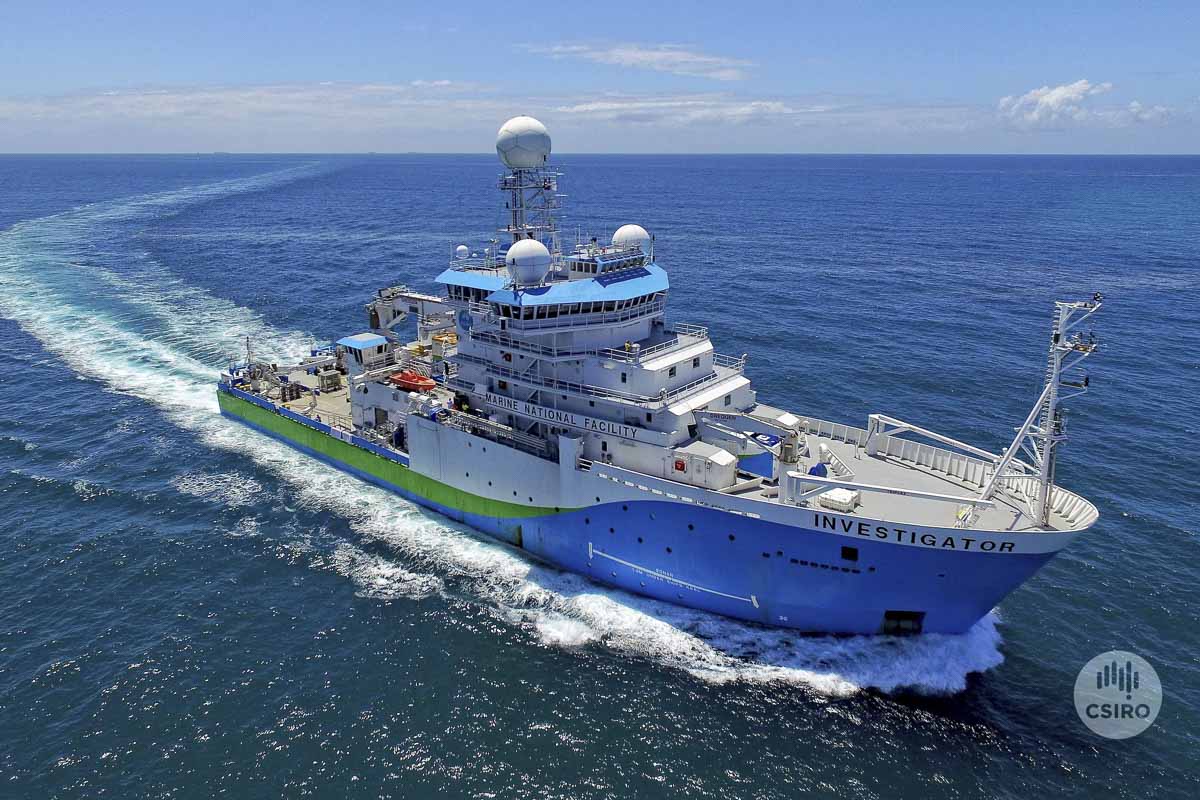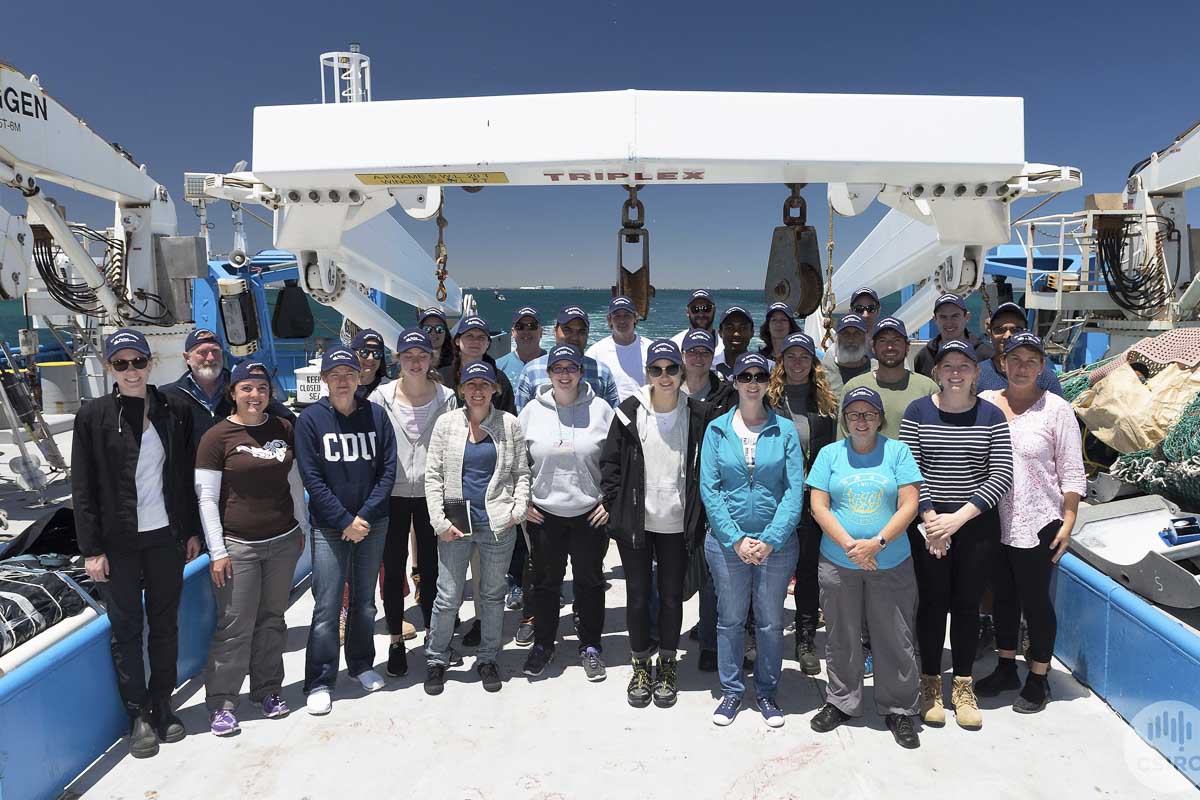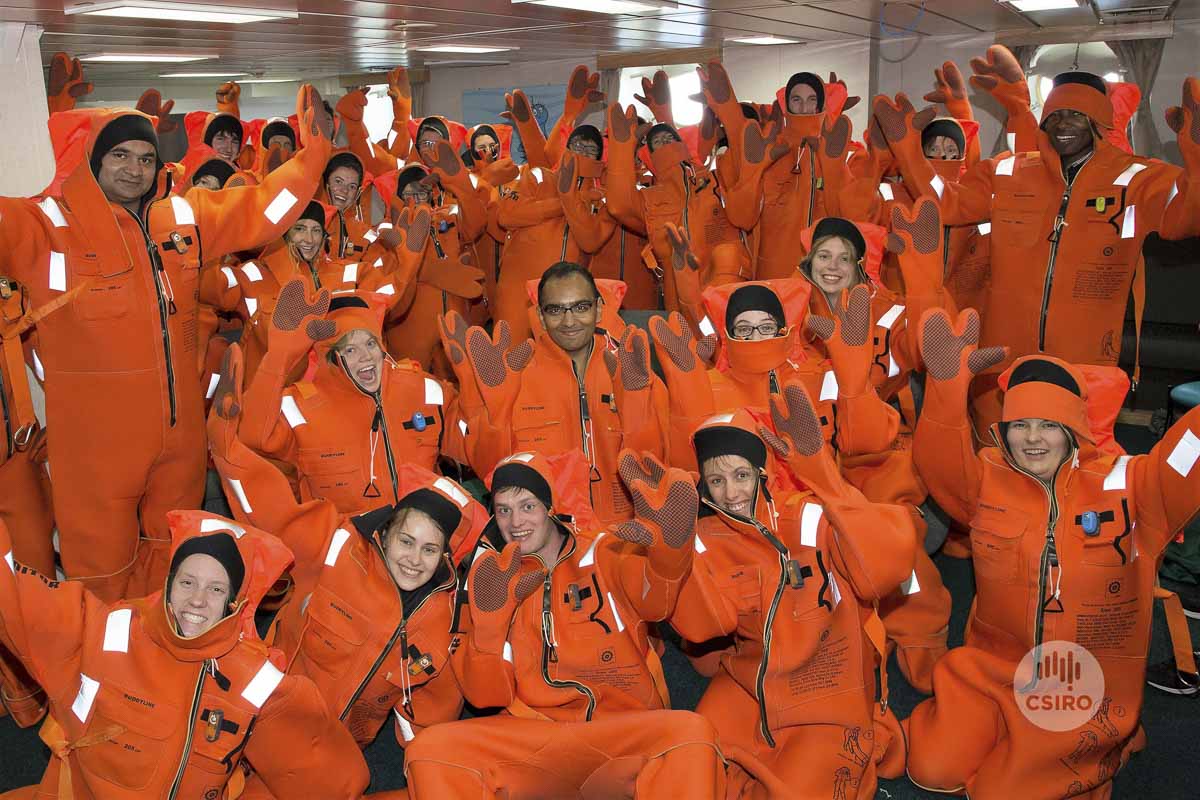
A bold expedition to the most remote western corner of the Great Australian Bight is underway to uncover hidden life at the bottom of the ocean and expand current knowledge of the region’s marine ecosystem.
The voyage is part of a pilot training program for next-generation marine scientists, run by the national Collaborative Australian Postgraduate Sea Training Alliance Network (CAPSTAN).
As part of this unique training program, 20 postgraduate students and nine trainers from 12 Australian universities are getting the chance to observe rarely seen marine life in situ over a two-week period on board Australia’s marine research vessel Investigator.
The team is also hoping to glimpse an unknown “mega predator” that is known to have recently devoured a White Shark in the region, but whose identity has defied marine experts.

Chief Scientist of the inaugural CAPSTAN voyage, Associate Professor Jochen Kaempf from Flinders University, is supervising the scientific expedition and has helped plan the at-sea training program.
“The CAPSTAN voyage is giving our budding marine scientists an incredibly rare and valuable opportunity to have an immersive aquatic experience and undertake training alongside a multidisciplinary team comprising geologists, ecologists, oceanographers and bird and marine megafauna specialists,” says Associate Professor Kaempf.
“As part of the training program, the students are shooting underwater videos, taking water samples and completing laboratory analysis of marine life in order to improve scientific understanding of the underwater activities in the Great Australian Bight.
“They are also gaining experience using a wide range of marine equipment and applying newly acquired sea-survival skills,” he says.

While at sea, the team will focus specifically on the Bremer Canyon region, a known biodiversity hotspot for marine megafauna, and collect data on key oceanographic currents such as the Leeuwin Current and the Subtropical Front.
Associate Professor Kaempf says this remote region of the far western Bight has rarely been sampled and the scientific data collected on this training voyage may provide new clues to the underwater nutrient sources fuelling marine life, including unknown mega predators.
As part of the training, the team will also survey the seafloor in regions that have never been mapped before.
“This voyage is a once-in-a-lifetime experience not only for the students, but also for the CAPSTAN trainers,” says Professor Kaempf.
Other Flinders crew members currently on board RV Investigator include Emeritus Professor Matthias Tomczak, a world-renowned oceanography expert, and Honours student in biology, Elise Tuuri.
The maiden CAPSTAN voyage departed Henderson in Western Australia on 14 November and will arrive in Hobart on 26 November.
Future CAPSTAN voyages are planned for 2019 and 2020 with the support of the Marine National Facility, which manages RV Investigator for scientific missions and delivers a national platform to foster collaboration in the marine sciences.

About Associate Professor Jochen Kaempf
Associate Professor Jochen Kaempf is a physical oceanographer at Flinders University who is a past winner of the Jill Hudson Award for Environmental Protection from the Conservation Council of South Australia.
He is also responsible for identifying several important upwelling regions around Australia – in the eastern Great Australian Bight, off the west coast of Tasmania, and in the Arafura Sea.
Upwelling is a naturally occurring phenomenon that brings nutrient-rich subsurface water up to the sea’s upper layers where it plays a vital role in the marine food chain globally.
Follow the CAPSTAN voyage blog

